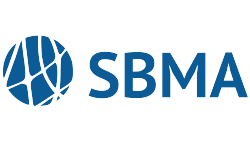President Joe Biden continues seeking ways to make healthcare more affordable for Americans. His efforts include aiding over five million people who fall into the ‘family glitch’ of the Affordable Care Act (ACA).
The ‘family glitch’ is a section of the ACA that decreases the ability for families to qualify for health subsidies that make healthcare more affordable.
Currently, families do not qualify for health subsidies if they pay 9.61% or less of their paycheck on health insurance.
The goal of the current administration’s expanded health subsidies proposal is to allow family members who pay more than 10% of their income to health coverage to qualify for a subsidy.
Through this proposal, nearly 1 million Americans will have access to more affordable healthcare, and nearly 200,000 will gain coverage.
In April 2022, The Internal Revenue Service proposed a rule to allow some families with employer-sponsored coverage to receive financial support through subsidies if the families use a plan on the Obamacare marketplace.
For those curious about how Obamacare is different from Medicaid, read our article explaining the two.
Read Bloomberg Law’s full article below.
- More than 5 million people fall into the ‘family glitch’
- The proposed IRS fix would expand Obamacare subsidies
- Health & Welfare Employee Benefits Guide: Compliance with the Affordable Care Act
The Biden administration is pressing ahead with its efforts to improve the affordability of health coverage, moving forward with a proposal to revisit a regulatory stumbling block long criticized by healthcare advocates.
The “family glitch,” part of a 2013 rule implementing the Affordable Care Act, makes it harder for many families to qualify for the premium subsidies that help make Obamacare coverage affordable. The Kaiser Family Foundation estimated in a 2021 report that “more than 5.1 million people fall in the family glitch.”
The 2013 regulation specifies that if individuals are eligible for affordable employer coverage that meets ACA qualifications, neither they nor their family members can get premium tax credit subsidies. The affordability standard is based on what employees have to pay for self-only coverage, 9.61% of pay in 2022, rather than on whether such family coverage is affordable.
1. What did the IRS do?
The Internal Revenue Service on April 7 published in the Federal Register a proposed rule (RIN 1545-BQ16) that would allow some families of people with employer-sponsored coverage to get premium tax credit subsidies through the Obamacare marketplaces.
Under the proposal, family members who have to pay more than 10% of their income for coverage would be able to get financial help.
The proposal was released the same day President Joe Biden issued an executive order directing federal agencies to do “everything in their power to expand affordable, quality health coverage,” including “Continuing to make health coverage more accessible and affordable by expanding eligibility and lower costs for Americans with ACA, Medicare, or Medicaid coverage.”
The vast majority of those who fall in the family glitch, 4.4 million people (85%), are currently enrolled through employer-sponsored health insurance, according to the Kaiser Family Foundation. These families are likely spending far more for coverage than individuals with similar incomes eligible for financial assistance on the ACA marketplaces and could spend less on premiums if they could enroll in marketplace plans and qualify for subsidies.
In 2020, the Congressional Budget Office estimated the cost of “expanding affordability for working families to fix the family glitch” at over $45 billion from 2020 to 2030.
The IRS is proposing that the new interpretation of affordability would take effect beginning in 2023 so that people could get financial assistance in the next open enrollment period.
Comments are due on the proposed rule by June 6, and a public hearing is scheduled for June 27.
2. What New Options Would Workers Get?
“Nearly 1 million Americans would see their coverage become more affordable,” according to a White House fact sheet. Many families would be able to save hundreds of dollars a month in lower premiums, the fact sheet said.
The White House also estimated a relatively low 200,000 uninsured people would gain coverage under the proposal.
However, if family members who are currently covered by employer plans leave those plans to get exchange coverage, that would mean they have different policies than household members who stick with the employer plans. That, in turn, likely means different out-of-pocket rules and networks, making it more complicated to navigate the healthcare system.
3. Do Employers Face New Penalties as a Result?
No. Under the Affordable Care Act, employers with at least 50 full-time employees face large penalties for not offering “minimum essential” coverage that is affordable for their employees. However, they don’t face penalties for not offering coverage that is affordable to families, and they wouldn’t be liable under the IRS proposed rule since the employer mandate penalty doesn’t extend to spouses and dependents.
4. What Do Employers Think of the Change?
One employer group that weighed in on the issue is supportive.
“The ERISA Industry Committee (ERIC) applauds the Biden Administration for addressing the ‘family glitch,’” Christina Ciconte, the group’s public policy manager, said in an April 5 email. ERIC represents large employers that provide employee benefits, including health care.
“It is ERIC’s understanding that today’s announcement by the Administration affects only health insurance purchased through the Exchange and not employer-sponsored group health plan coverage,” Ciconte said. “We appreciate that the Administration’s Executive Order and Proposed Rule do not add costs to employees and their beneficiaries.”
Employers previously had expressed concerns over a provision in Biden’s failed Build Back Better legislation that also would have narrowed the family glitch. They feared that measure would draw younger, healthier people in the Obamacare markets while leaving employers with individuals who are older and sicker.


